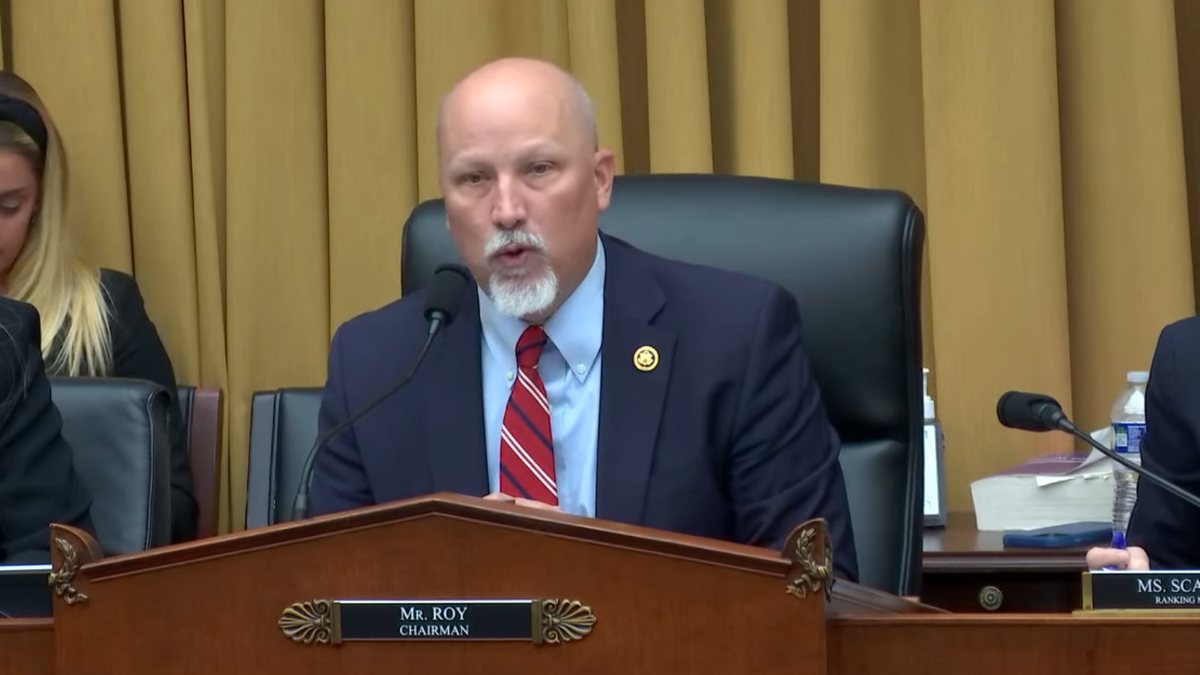
Last week, the U.S. Department of Health and Human Services filed papers in federal court claiming lawyers Rochelle Garza and Myles Garza forced a noncitizen pregnant minor in the care of the Office of Refugee Resettlement to sign paperwork appointing them to serve as her legal representatives. According to the document, the minor, identified only as Jane Doe, is detained in a Brownsville, Texas shelter and she does not seek an abortion or want the Garzas to represent her interests.
If the name Garza seems familiar in this context, it should: Rochelle Garza is the named plaintiff in Garza v. Hargan, the case the American Civil Liberties Union brought in October in which it sought to force the federal government to facilitate an abortion for a then-17-year-old illegal alien listed as J.D. Rochelle Garza served as J.D.’s guardian ad litem, lending her name to the caption, but in that case, it was the ACLU’s misconduct that drew the government’s attention.
As I explained at length at the time, the ACLU misled the DC Circuit during oral argument, then misrepresented to the government the timing of J.D.’s abortion, allowing her to be whisked away at 4:30 a.m. to obtain an abortion before the U.S. Department of Justice could appeal to the Supreme Court. The Supreme Court is currently considering whether the ACLU’s conduct justifies vacating the DC Circuit’s decision that illegal alien minors have a constitutional “right” to an abortion. To date, the justices have discussed the Garza case at three separate conferences and a decision could come as early as 9:30 this morning when the Supreme Court releases its latest orders.
Something Else Is Going on Here
Garza v. Hargan, however, involves an entirely separate case, and in it Rochelle Garza is not working on behalf of the ACLU. The latest filing came in In the Interest of Jane Doe, and it is in this case that the ORR seeks review of Rochelle and Myles Garza’s conduct relating to a different minor, asserting: “The minor has written and signed two statements attesting to being ‘made’ to sign a Department of Homeland Security (DHS) G-28 attorney representation form by the guardian and attorney ad litem, and that she no longer wants to receive further assistance from them, and does not want to obtain an abortion.”
In Texas, for a minor to obtain an abortion, the minor must obtain parental consent or a “judicial bypass.” A state court judge must authorize a minor to obtain an abortion if the minor demonstrates that she is mature and sufficiently well informed to choose abortion, that notifying either of the minor’s parents would not be in the minor’s best interests, or that notifying either of the minor’s parents would lead to abuse of the minor. In this case, the federal government stands in place of the parents since Jane Doe is an unaccompanied minor.
Although the government did not indicate the nature of the pending state court proceedings, given the context, the scheduled hearing was invariably for a judicial bypass to authorize Jane Doe to obtain an abortion. However, as the ORR explained in the court filing, Doe “does not seek an abortion, and does not want the state-appointed guardian ad litem, Rochelle Garza, and attorney ad litem, Myles Garza, to represent her interests.”
This Is Complicated, So Current Reports Aren’t Accurate
The media has remained quiet over this recent development, with Fox News, the Daily Caller, and pro-life outlets providing the only coverage of the government’s claim that the Garzas pushed the minor to sign papers appointing them her legal representatives. Also, this reporting is inaccurate, mainly because of the complexities of the case and the sealed nature of the proceedings.
For instance, in its report, Fox News stated that the “government’s filing asked United States District Judge Rolando Olvera to replace the Garzas as the minor’s guardians. Olvera has granted the request.” That cannot be correct because, while the ORR “removed” the Jane Doe case from state court to the federal district court, Olvera refused to accept jurisdiction. Instead, on February 15, 2018, Olvera remanded the case back to the state court system. Absent jurisdiction, a federal court remains powerless to do anything, including replacing the Garzas as Jane Doe’s legal representatives.
However, the case is not over, because the ORR immediately appealed Olvera’s order that would have sent Doe’s case back to state court. Also, on Friday, the Fifth Circuit Court of Appeals entered a temporary stay, keeping Jane Doe’s case in the federal court system, pending a decision by the Fifth Circuit on the ORR’s motion for a stay pending a full appeal.
This development is significant because, so long as the case remains in the federal court system, the state court lacks the power to proceed on the judicial bypass the Garzas filed on behalf of Jane Doe. Thus, not only was the February 12, 2018, hearing canceled, the state court cannot rule until the federal courts rule. One would think that, now that they know Jane Doe no longer wants their assistance, they would withdraw from the case. But the Fifth Circuit record continues to list Myles Garza as Doe’s legal representative.
What’s At Stake: Federal Control of Illegal Immigrants
The Fifth Circuit will likely rule on the ORR’s motion for stay pending appeal within the week and if granted—which I predict—it is likely the federal appellate court will also expedite the government’s appeal. The question for the Fifth Circuit will then be whether the ORR can remove cases involving the care of unaccompanied minors from the state court system. This question has ramifications much beyond this Jane Doe’s case.
To explain: In the United States we have two separate court systems, state and federal. Judicial bypass proceedings for abortions usually proceed in the state court system because typically the minor is a ward of the state or within the custody of her own parents. But in the case of unaccompanied minors, the federal government has custody. Yet attorneys such as the Garzas are heading to a local state court judge and obtaining orders that demand the federal government submit to the authority of a state court. That occurred in the Garza v. Hargan case, likely before the ACLU ever became involved.
The ORR, however, was ready this time and, immediately upon receiving an order to release Jane Doe to the state court system, the U.S. Department of Justice instead removed the case to a federal court. In the ordinary course of litigation, that’s where proceedings affecting the federal government are resolved.
If the federal government succeeds on appeal to the Fifth Circuit in this case, that will establish precedent allowing the ORR to remove other cases from the state court system, including cases involving minors seeking a judicial bypass, and in which the minor truly wants an abortion. That’s the real reason the Garzas are not standing down.









